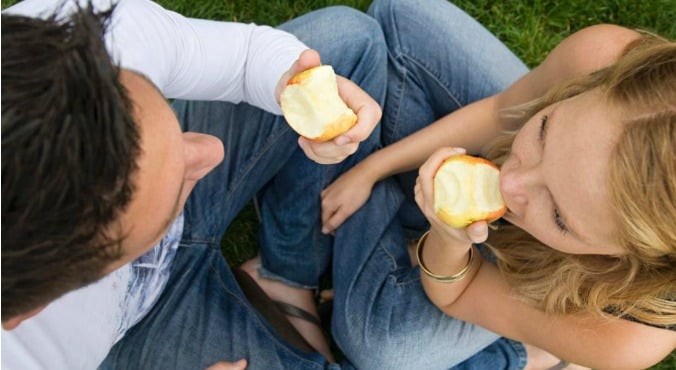
Image via iStock.
By Senaka Ranadheera, Victoria University
There is a growing demand for fruit and vegetables across the Western world, thanks to increased awareness of their nutritional and health benefits. But we’ve always been taught they might not be safe to eat straight out of the supermarket, and they have to be washed first.
Is this the case? And what might happen if we don’t?
What’s in a veggie?
Fruits and some vegetables are often consumed raw, fresh-cut or minimally processed, which is often why there are concerns about their safety. Fresh fruits and vegetables and unpasteurised juices can harbour disease-causing bugs (knows as pathogens) such as Salmonella, Campylobacter, Listeria and Shiga-toxin-producing E. coli (strains of E.coli). They can also contain pesticide residues and toxic compounds produced by moulds on the surface or even inside tissues of these foods.
Fresh fruits and vegetables may also contain allergens, which may be naturally occurring or contaminated, that can cause severe discomfort to people suffering from an intolerance. Of the potential risks, contamination with tiny bugs or organisms called microbes is the most prevalent.
The ingestion of very small numbers of dangerous bugs may not be harmful as our immune system can fight them off. But problems begin when the body’s defences fail, causing these “bad bugs” to multiply and spread throughout the body.
Watch: A delicious and healthy green smoothie recipe, as demonstrated by the Paper Tiger team. (Post continues after video.)
